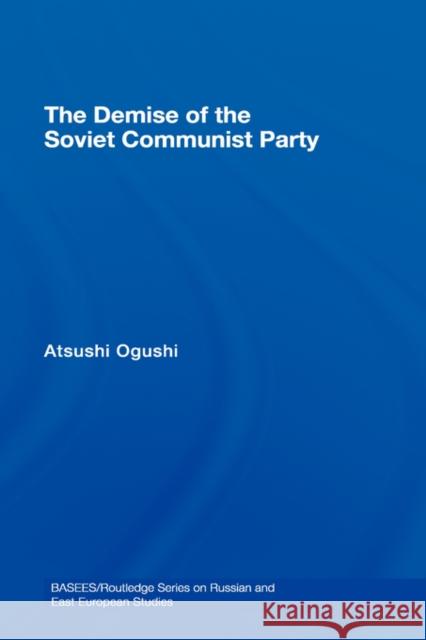The Demise of the Soviet Communist Party » książka
The Demise of the Soviet Communist Party
ISBN-13: 9780415434393 / Angielski / Twarda / 2007 / 240 str.
The Demise of the Soviet Communist Party
ISBN-13: 9780415434393 / Angielski / Twarda / 2007 / 240 str.
(netto: 699,68 VAT: 5%)
Najniższa cena z 30 dni: 705,23
ok. 22 dni roboczych.
Darmowa dostawa!
This book, based on extensive original research in previously unexplored sources, including the party archives, provides a great deal of new information on the disintegration of the Soviet communist party, in 1991 and the preceding years. It argues that, contrary to prevailing views, the party was reformable in late Soviet times, but that attempts to reform it failed: reforms succeeded in preventing the party interfering in the state body, and thereby abolished the party's traditional administrative functions, but without creating an alternative power centre, and without transforming the party from a vanguard party into a parliamentary party. It demonstrates that the party, having ceased to offer career paths for aspiring party members, thereby lost its reason for existence, that an exodus of party members then followed, which in turn caused a financial crisis; and that this financial crisis, and the resulting engagement in commercial activity, fragmented and dispersed party property. It shows how the failed coup of 1991 was led by the military rather than the party, and how having lost its reason for existence and its property, the party had no choice but to accept the reality that it was de facto dead.
This book, based on extensive original research in previously unexplored sources, including the party archives, provides a great deal of new information on the disintegration of the Soviet communist party, in 1991 and the preceding years. It argues that, contrary to prevailing views, the party was reformable in late Soviet times, but that attempts to reform it failed: reforms succeeded in preventing the party interfering in the state body, and thereby abolished the party's traditional administrative functions, but without creating an alternative power centre, and without transforming the party from a vanguard party into a parliamentary party. It demonstrates that the party, having ceased to offer career paths for aspiring party members, thereby lost its reason for existence, that an exodus of party members then followed, which in turn caused a financial crisis; and that this financial crisis, and the resulting engagement in commercial activity, fragmented and dispersed party property. It shows how the failed coup of 1991 was led by the military rather than the party, and how having lost its reason for existence and its property, the party had no choice but to accept the reality that it was de facto dead.











